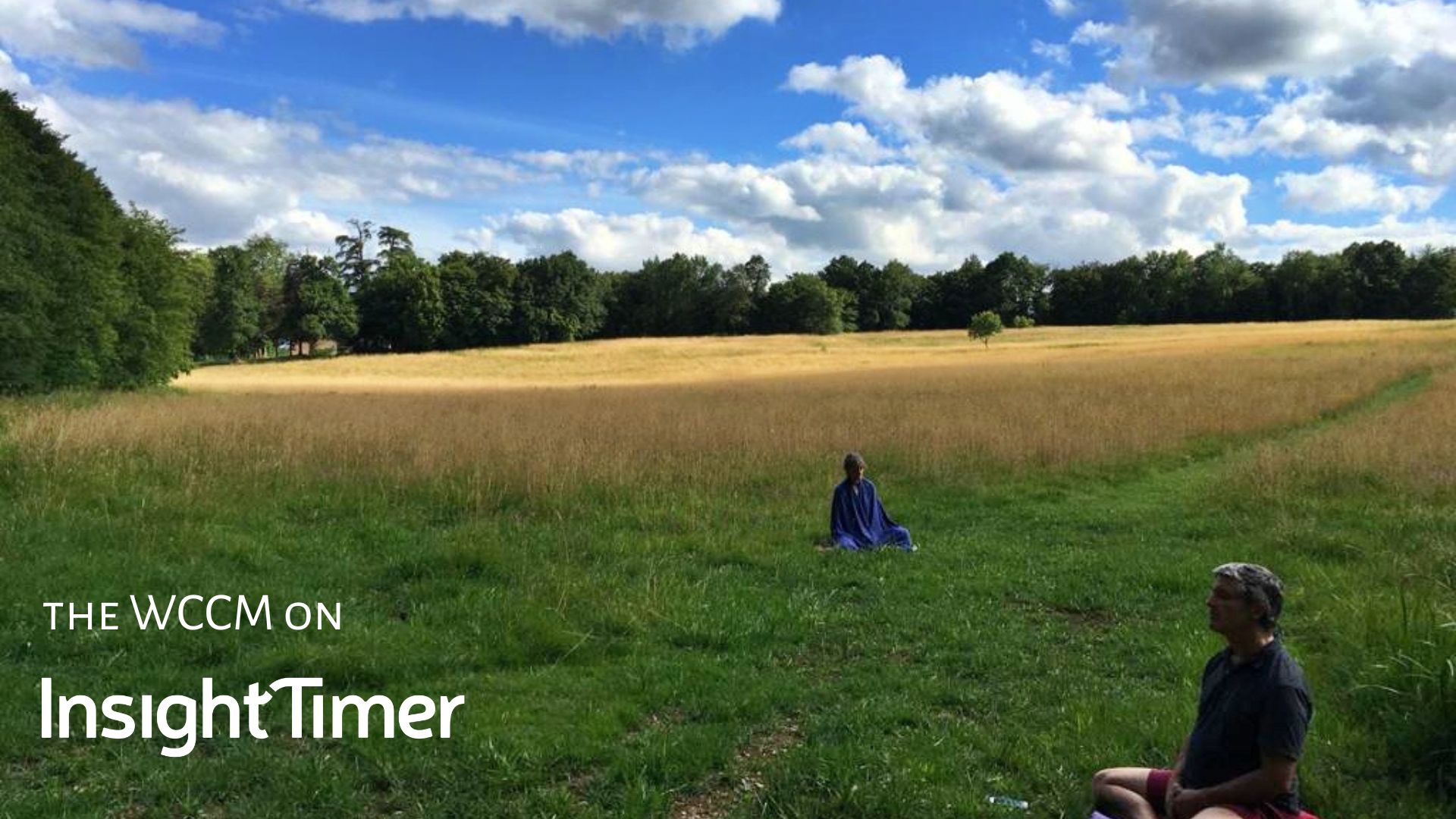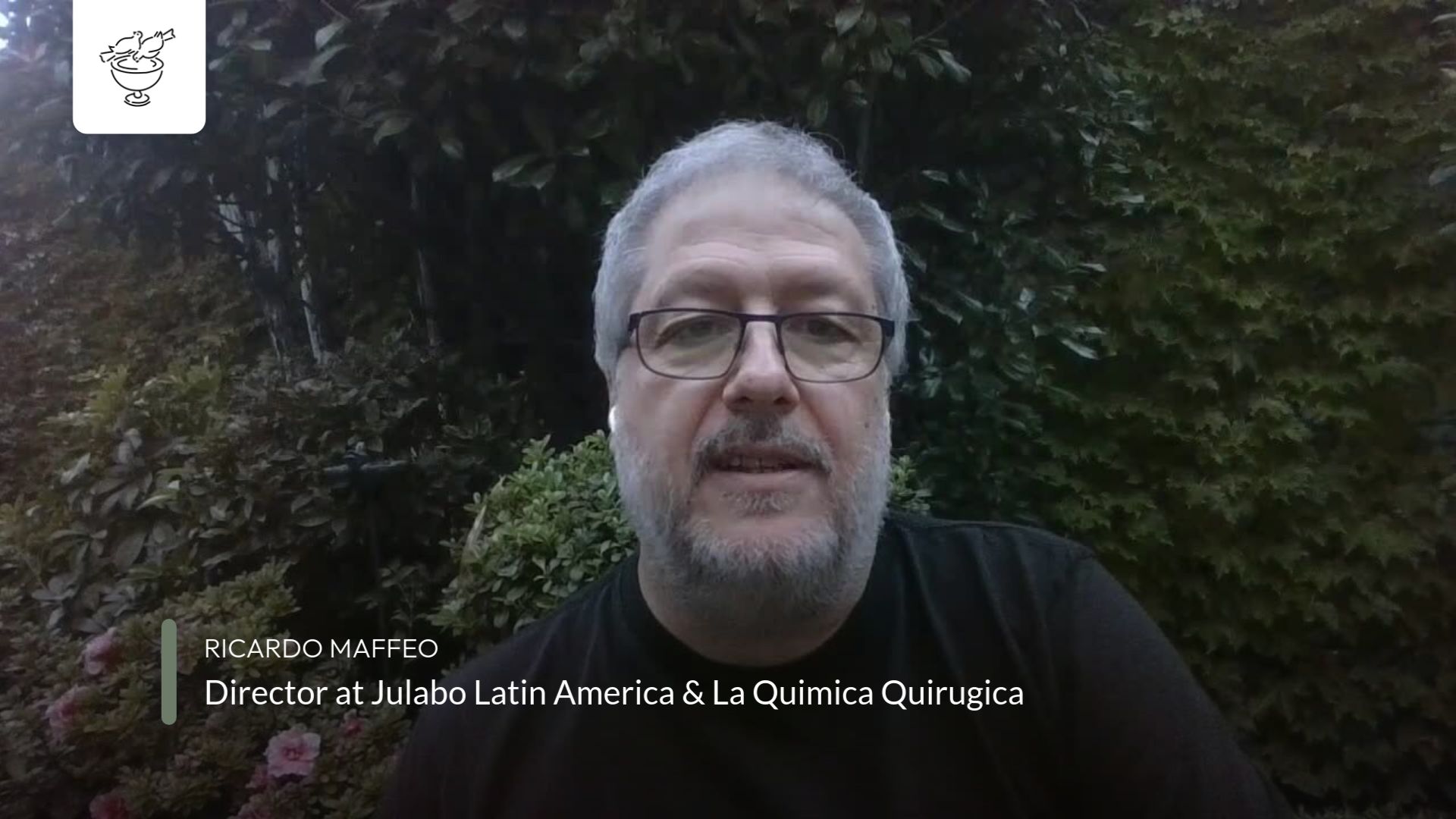Hi, my name is Grace. Welcome to a new reflection from the WCCM Young Insight Timer channel. Here we share teachings from John Main, Laurence Freeman and the Christian contemplative tradition. Today, we’re gonna share a reflection on what christian meditation is, the mantra, the challenges and benefits of the meditation practice.
What is Christian meditation?
Meditation is found in many traditions. In the Christian tradition, it is the prayer of the heart and is often referred to as pure prayer or prayer of the heart because it is a prayer without thoughts, words or images and so takes us beyond the imagination and the ego. When we meditate, we are not thinking about God or speaking to God. We are simply being with God in the silence and stillness of the present moment. We move from the mind to the heart. It is a prayer of silence, stillness and attention. The essence of all prayer and love is attention.
How do we meditate? We meditate by becoming still in body and mind. The first thing is to sit still. Meditation is not something we do just in our heads. It involves the whole person: body, mind and spirit. So the way we sit is important, it is important to sit still with a straight back, to be alert and awake.
Jesus said: stay awake and pray.
Our physical posture is the first stage. We become as still as we can physically. But the real stillness is within the first thing we discover when we sit still is that our mind is racing from one thought to another, from one plan to another one, memory to another one fantasy to another. Don’t be surprised or disappointed. Be glad that you can recognize what your mind is like. Because of this discovery of how distracted we are, many people are discouraged when they start. Don’t be discouraged. It is exactly why we need to meditate: to calm the mind and allow the mind to become quieter, more, still more clear. Meditation is learning to be in the present moment. When we meditate, we discover we are not in the present moment. Our surface mind is usually dwelling in the past or the future or dwelling on some fantasy. Only in the present moment, can we find real peace. Can we be at one with the God who is.
At this stage, the mind is like driving in a fast stream of traffic or being stuck in a traffic jam. Meditation slows the traffic and clears it. But we can’t do this entirely on our own. Saint Paul tells us that the Spirit prays within us, deeper than words. When we meditate, we are allowing what we think of at first as my prayer to become one with the prayer of the Spirit. When we meditate, we are entering into the living tradition that John Main passed on to us and which he found in the wisdom of the early Christian monks.
They recommended a way of pure prayer and childlike simplicity that takes us to the core of our being. They said to take a single word, a prayer word or mantra, a sacred word. During the time of meditation, we repeat the single word faithfully, from beginning to the end of our time of meditation. We let go of every thought word and image. When we become distracted, we start saying the word again, distractions will come constantly, this is normal. So don’t fight your distractions, take your attention off them and return it to the mantra.
We say the word, gently without force, faithfully with attention and lovingly.
We must leave self behind. When we say it faithfully, we are letting go of our thoughts, our possessions, we are entering poverty of Spirit.When we say it with loving attention, we are beginning to love God who loves us so that we can love him. People often ask at first: what should happen in my meditation? We’re not trying to make anything happen but reality is dawning. Nothing may seem to happen but we will discover that meditation gradually changes our lives as we find the fruits of the Spirit growing in us.
At times, our meditation may lead us to experience great peace and joy. Sometimes it seems a hard slog and a waste of time. We learn to meditate with discipline without demands or expectations. We don’t meditate just for short term benefits. Jesus said in the Beatitudes ‘happy are the poor in spirit, for theirs is the kingdom of heaven.’ When we meditate, we are becoming poor in spirit. Reflect on what poverty of Spirit really means. Think of it as a letting go and becoming non possessive. Choosing the word or mantra we say is important.
It is important that we stay with the same word throughout each meditation and at each time we meditate. This allows the word to become rooted in our heart. We could use the word ‘Jesus’ or ‘Abba’. The word we recommend is ‘Maranatha’. It is the oldest Christian prayer in Aramaic. The language Jesus spoke and means: ‘ come Lord.’ Saint Paul closes the first letter to the Corinthians with it. It is a sacred Christian prayer work, but we don’t think about its meaning, say it faithfully attentively and lovingly as we listen to it. It calms the mind and leads us from the noisy monkey mind into the heart, the deeper and more silent center of our being, say it as four equal syllables: Ma- Ra- Na- Ta. Articulate it clearly silently and listen to it. Try to meditate twice a day, each morning and each evening for about 25 minutes.
This will take time.
Be patient. Keep on.
Meditation is simplicity itself. The only difficult thing is that it is so simple. What makes it possible for all of us is that it is so simple. Think about how naturally children take to meditation. The problem is being simple isn’t easy because we have to face our complexities. But meditation itself will simplify us, if we allow it to patiently and gently do its work.
Thank you. Peace be with you. See you in the next audio!
About Insight Timer
Did you know that WCCM is also on Insight Timer? Insight Timer is a free meditation app, accessible to everyone. You can download the app for iOS and for Android to register. WCCM Young is a group on Insight Timer especially dedicated to younger meditators and it’s available in English and Portuguese!





